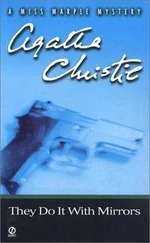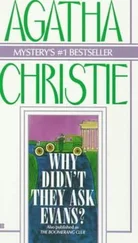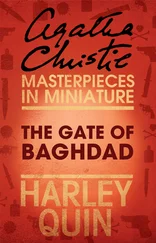Agatha Christie - They Came to Baghdad
Здесь есть возможность читать онлайн «Agatha Christie - They Came to Baghdad» весь текст электронной книги совершенно бесплатно (целиком полную версию без сокращений). В некоторых случаях можно слушать аудио, скачать через торрент в формате fb2 и присутствует краткое содержание. Жанр: Классический детектив, на английском языке. Описание произведения, (предисловие) а так же отзывы посетителей доступны на портале библиотеки ЛибКат.
- Название:They Came to Baghdad
- Автор:
- Жанр:
- Год:неизвестен
- ISBN:нет данных
- Рейтинг книги:5 / 5. Голосов: 1
-
Избранное:Добавить в избранное
- Отзывы:
-
Ваша оценка:
- 100
- 1
- 2
- 3
- 4
- 5
They Came to Baghdad: краткое содержание, описание и аннотация
Предлагаем к чтению аннотацию, описание, краткое содержание или предисловие (зависит от того, что написал сам автор книги «They Came to Baghdad»). Если вы не нашли необходимую информацию о книге — напишите в комментариях, мы постараемся отыскать её.
They Came to Baghdad — читать онлайн бесплатно полную книгу (весь текст) целиком
Ниже представлен текст книги, разбитый по страницам. Система сохранения места последней прочитанной страницы, позволяет с удобством читать онлайн бесплатно книгу «They Came to Baghdad», без необходимости каждый раз заново искать на чём Вы остановились. Поставьте закладку, и сможете в любой момент перейти на страницу, на которой закончили чтение.
Интервал:
Закладка:
And without Anna Scheele, the evidence was incomplete.
A messenger came in with a piece of paper on which was written Mr Richard Baker and Mrs Pauncefoot Jones.
‘I can’t see anybody now,’ said Dakin. ‘Tell them I am very sorry. I am engaged.’
The messenger withdrew, but presently he returned. He handed Dakin a note.
Dakin tore open the envelope and read:
‘I want to see you about Henry Carmichael. R. B.’
‘Show him in,’ said Dakin.
Presently Richard Baker and Mrs Pauncefoot Jones came in. Richard Baker said:
‘I don’t want to take up your time, but I was at school with a man called Henry Carmichael. We lost sight of each other for many years, but when I was at Basrah a few weeks ago I encountered him in the Consulate waiting-room. He was dressed as an Arab, and without giving any overt sign of recognition, he managed to communicate with me. Does this interest you?’
‘It interests me very much,’ said Dakin.
‘I formed the idea that Carmichael believed himself to be in danger. This was very soon verified. He was attacked by a man with a revolver which I managed to knock up. Carmichael took to his heels but before he went, he slipped something into my pocket which I found later – it didn’t appear to be important – it seems to be just a “chit” – a reference for one Ahmed Mohammed. But I acted on the assumption that to Carmichael it was important.’
‘Since he gave me no instructions, I kept it carefully, believing that he would one day reclaim it. The other day I learnt from Victoria Jones that he was dead. From other things she told me, I have come to the conclusion that the right person to deliver this object to is you.’
He got up and placed a dirty sheet of paper with writing on it on Dakin’s desk.
‘Does this mean anything to you?’
Dakin drew a deep sigh.
‘Yes,’ he said. ‘It means more than you can possibly imagine.’
He got up.
‘I’m deeply obliged to you, Baker,’ he said. ‘Forgive my cutting this interview short, but there is a lot that I have to see to without wasting a minute.’ He shook hands with Mrs Pauncefoot Jones, saying, ‘I suppose you are joining your husband on his Dig. I hope you have a good season.’
‘It’s a good thing Pauncefoot Jones didn’t come into Baghdad with me this morning,’ said Richard. ‘Dear old John Pauncefoot Jones doesn’t notice much that goes on, but he’d probably notice the different between his wife and his wife’s sister.’
Dakin looked with slight surprise at Mrs Pauncefoot Jones. She said in a low pleasant voice.
‘My sister Elsie is still in England. I dyed my hair black and came out on her passport. My sister’s maiden name was Elsie Scheele. My name, Mr Dakin, is Anna Scheele .’
Chapter 24
Baghdad was transformed. Police lined the streets – police drafted in from outside, the International Police. American and Russian Police stood side by side with impassive faces.
Rumours were spreading the whole time – neither of the Great Ones was coming! Twice the Russian plane, duly escorted, landed – and proved to contain only a young Russian pilot!
But at last the news went round that all was well. The President of the United States and the Russian Dictator were here, in Baghdad. They were in the Regent’s Palace.
At last the historic Conference had begun.
In a small ante-room certain events were taking place which might well alter the course of history. Like most momentous happenings, the proceedings were not at all dramatic.
Doctor Alan Breck of the Harwell Atomic Institute contributed his quota of information in a small precise voice.
Certain specimens had been left with him for analysis by the late Sir Rupert Crofton Lee. They had been acquired in the course of one of Sir Rupert’s journeys through China and Turkestan through Kurdistan to Iraq. Dr Breck’s evidence then became severely technical. Metallic ores…high uranium content…Source of deposit not known exactly, since Sir Rupert’s notes and diaries had been destroyed during the war by enemy action.
Then Mr Dakin took up the tale. In a gentle tired voice he told the saga of Henry Carmichael, of his belief in certain rumours and wild tales of vast installations and underground laboratories functioning in a remote valley beyond the bounds of civilization. Of his search – and of the success of his search. Of how that great traveller, Sir Rupert Crofton Lee, the man who had believed Carmichael because of his own knowledge of those regions, had agreed to come to Baghdad, and of how he had died. And of how Carmichael had met his own death at the hands of Sir Rupert’s impersonator.
‘Sir Rupert is dead, and Henry Carmichael is dead. But there is a third witness who is alive and who is here today. I will call upon Miss Anna Scheele to give us her testimony.’
Anna Scheele, as calm and composed as if she were in Mr Morganthal’s office, gave lists of names and figures. From the depths of that remarkable financial brain of hers, she outlined the vast financial network that had drained money from circulation, and poured it into the financing of activities that should tend to split the civilized world into two opposing factions. It was no mere assertion. She produced facts and figures to support her contention. To those who listened she carried a conviction that was not as yet fully accorded to Carmichael ’s wild tale.
Dakin spoke again:
‘Henry Carmichael is dead,’ he said. ‘But he brought back with him from that hazardous journey tangible and definite proofs. He did not dare to keep those proofs on him – his enemies were too close on his track. But he was a man of many friends. By the hands of two of those friends, he sent the proofs to the safe keeping of another friend – a man whom all Iraq reveres and respects. He has courteously consented to come here to-day. I refer to Sheikh Hussein el Ziyara of Kerbela.’
Sheikh Hussein el Ziyara was renowned, as Dakin had said, throughout the Moslem world, both as a Holy Man and a poet of renown. He was considered by many to be a Saint. He stood up now, an imposing figure with his deep brown hennaed beard. His grey jacket edged with gold braid was covered by a flowing brown cloak of gossamer fineness. Round his head he wore a green cloth head-dress which was bound with many strands of heavy gold agal and which gave him a patriarchal appearance. He spoke in a deep sonorous voice.
‘Henry Carmichael was my friend,’ he said. ‘I knew him as a boy and he studied with me the verses of our great poets. Two men came to Kerbela, men who travel the country with a picture show. They are simple men, but good followers of the Prophet. They brought me a packet which they said they had been told to deliver into my hands from my friend the Englishman Carmichael. I was to keep this in secrecy and security and to deliver it only to Carmichael himself, or to a messenger who would repeat certain words. If in truth you are the messenger, speak, my son.’
Dakin said, ‘Sayyid, the Arabic poet Mutanabbi, “the Pretender to prophecy”, who lived just one thousand years ago, wrote an Ode to Prince Sayfu ’l-Dawla at Aleppo in which those words occur: Zid hashshi bashshi tafaddal adni surra sili. ’ [1]
With a smile Sheikh Hussein el Ziyara held out a packet to Dakin.
‘I say as Prince Sayfu ’l-Dawla said: “You shall have your desire…”’
‘Gentlemen,’ said Dakin. ‘These are the microfilms brought back by Henry Carmichael in proof of his story…’
One more witness spoke – a tragic broken figure: an old man with a fine domed head who had once been universally admired and respected.
He spoke with a tragic dignity.
Читать дальшеИнтервал:
Закладка:
Похожие книги на «They Came to Baghdad»
Представляем Вашему вниманию похожие книги на «They Came to Baghdad» списком для выбора. Мы отобрали схожую по названию и смыслу литературу в надежде предоставить читателям больше вариантов отыскать новые, интересные, ещё непрочитанные произведения.
Обсуждение, отзывы о книге «They Came to Baghdad» и просто собственные мнения читателей. Оставьте ваши комментарии, напишите, что Вы думаете о произведении, его смысле или главных героях. Укажите что конкретно понравилось, а что нет, и почему Вы так считаете.












